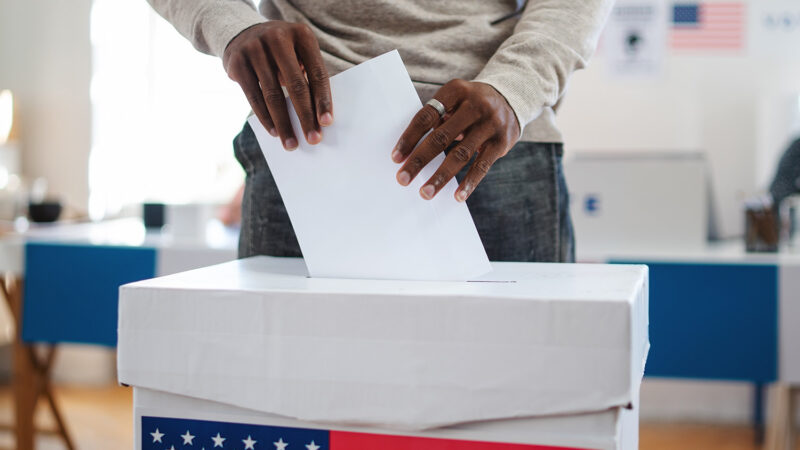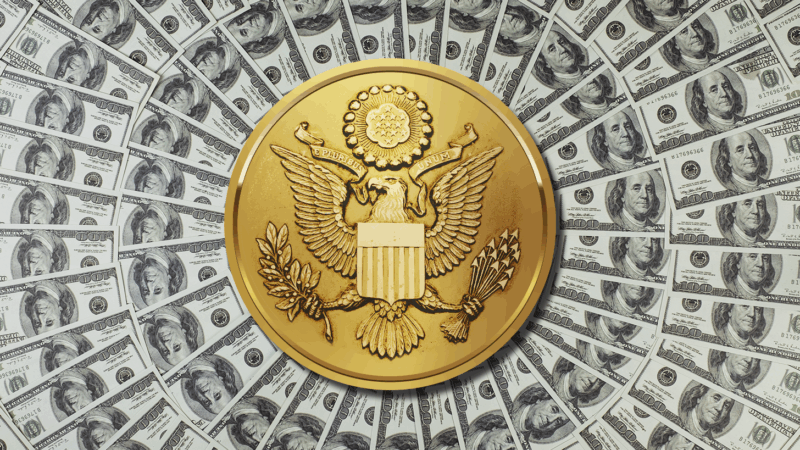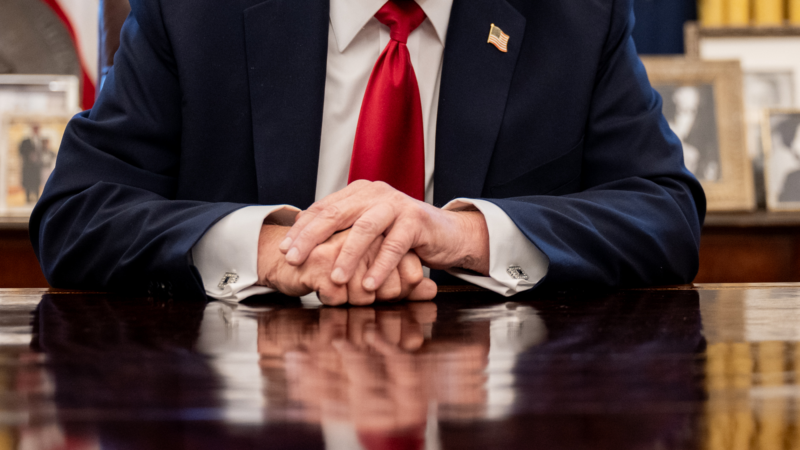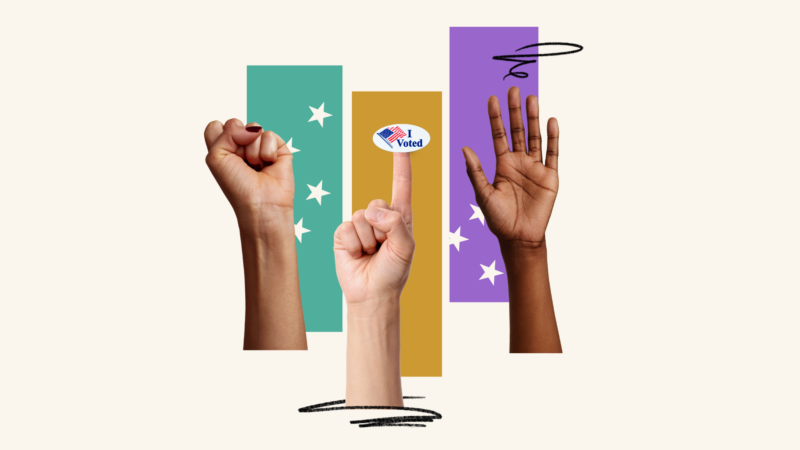Deana Kim El-Mallawany oversees Protect Democracy's work to prevent the threat of another autocratic presidency from dismantling our democracy, as well as its long-term work to drive the structural change needed to secure the multi-racial democracy of tomorrow.
The triple threat to democracy in 2024
- January 10, 2024
Holding the pro-democracy coalition together on three frontiers
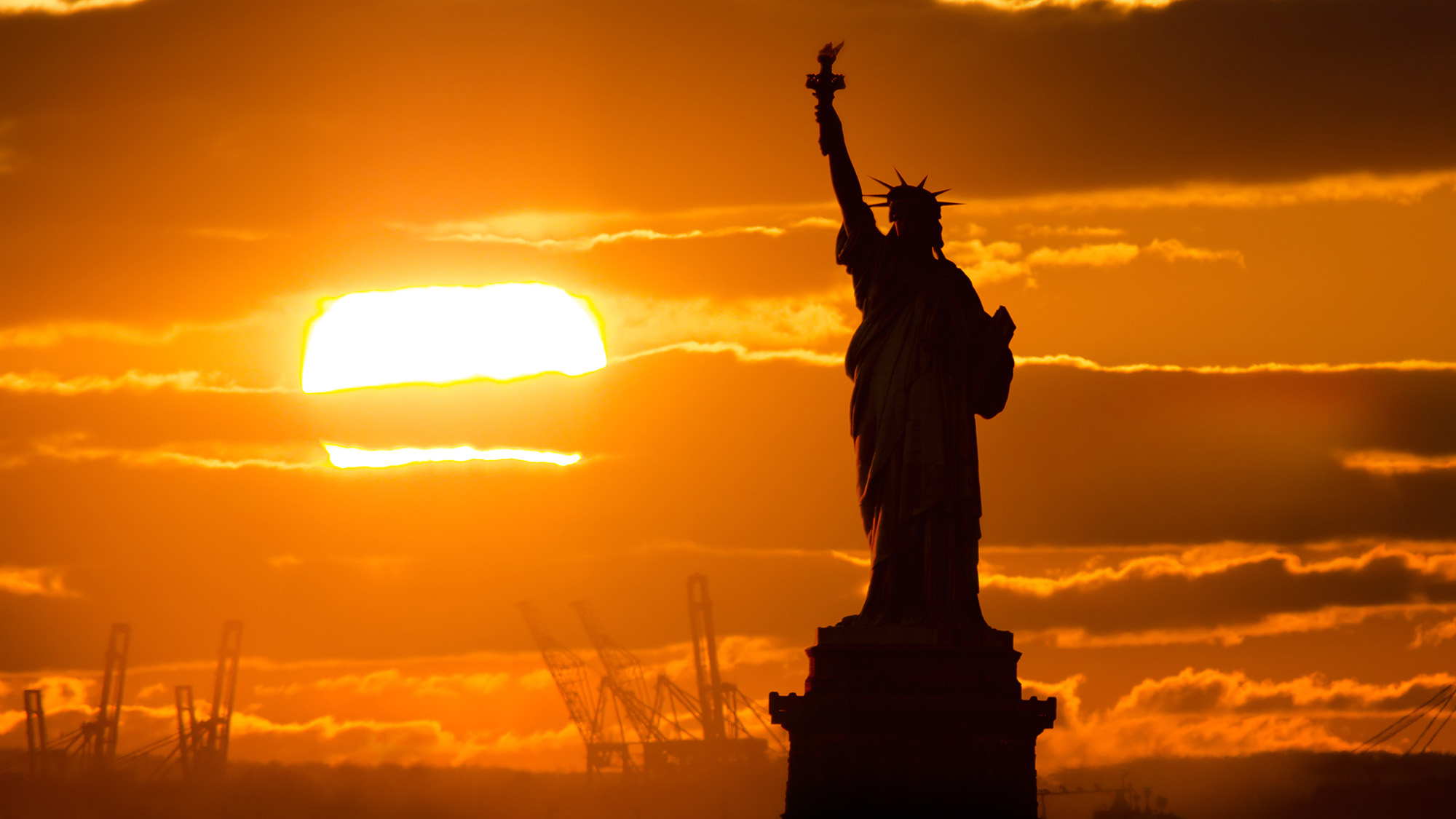
2024 may well be the most difficult year for American democracy in our lifetimes. One of our major political parties is consolidating around a candidate who launched a violent coup attempt to overthrow the last election. While seeking to rewrite the story of that insurrection and evade any accountability for it, that faction is planning a campaign of retribution and dismantling of checks and balances if it returns to power. Our political parties are ever more calcified, with voters mobilized more by fear of or anger toward the opposing party (affective polarization) than enthusiasm for a candidate or vision. All the while, the American public is losing confidence in our institutions — and in the effectiveness of U.S. democracy.
In the face of these challenges, the fate of our democracy hinges on the ability to hold together a broad, pro-democracy coalition — the roughly 60-plus percent of the country that believes strongly in democracy and is willing to vote to protect it.
If such a coalition stays unified, engaged, and committed to putting the overall health of our democracy above deeply held ideological views, our democracy will likely endure. And not only that, but we will begin to see the grass-shoots of a more vibrant, representative, and inclusive democracy. But if the coalition collapses, we may see a quick crackdown on the rule of law and freedoms many of us have long taken for granted.
Part of this task is simply electoral. The preservation of democracy in the United States requires a strong and unified ballot box coalition, where Democrats, Republicans and Independents — progressives, moderates, and conservatives — join together to ensure the defeat of autocratic candidates. But beyond that, three deeper questions will likely determine whether the autocratic faction succeeds or is thwarted this year, regardless of how the voters vote. Will the election be free and fair? Will the rule of law survive various assaults? And will we begin to escape our democracy doom loop?
Alongside the election itself, these are the key uncertainties in an uncertain year. And every American — regardless of ideology, party, profession, or background — has a stake in the answers.
First, will there even be a free & fair election?
As we learned in 2020, we cannot afford to take free & fair elections — and a peaceful continuation or transfer of power — for granted.
An essential task for the pro-democracy coalition this year is to protect the election itself. Election subversion, an intentional effort to manipulate election results to ensure a particular outcome, remains a major threat in 2024.
We expect such an effort would include some combination of three strategies. First, spreading disinformation to erode voter confidence and to seed specific fraud narratives. Second, direct interference by officials or private actors in election processes, including by injecting chaos and uncertainty as pretext for disregarding the outcome. And third, direct attempts to overturn the result of the popular vote at some point in the certification process, either in favor of the loser or to simply declare the result uncertain or unknowable. All of this may be made easier by an ongoing wave of election subversion legislation at the state level.
This effort may also involve a wide variety of other tactics to try to sway the election, including intimidation and violence directed at voters or election officials; mass eligibility challenges, public records requests, or baseless litigation attempts to disrupt the ability of eligible voters to vote and election officials to do their jobs; or even attempts to compromise voter rolls or destroy ballots and/or election equipment.
A range of actors, from civil society organizations and litigators to journalists, lawmakers, and law enforcement, must be prepared for these potential attacks and ready to respond.
How can we, collectively, ensure a free and fair election? Some examples:
- Mitigate and deter disinformation about the election, including through accountability for past defamatory lies. (Read more.)
- Defend election officials, campaigns, and voters from intimidation and violence with additional resources, law enforcement support, and coordination. (Read more.)
- Ensure lawful certification of accurate results through careful media coverage and clear communication around legal obligations. (Read more.)
- Prepare for implementation of the newly strengthened Electoral Count Reform Act. (Read more.)
At the same time, while we should learn from the things that went wrong in 2020 and 2022, the only certainty about the 2024 election is that it will be unpredictable. We must be prepared to respond to the crises and challenges that emerge, whatever they end up being.
In the face of this known unknown, the most critical thing is alignment behind the broad importance of a free & fair election — and commitment to putting aside party and politics when challenges arise.
Second, will the rule of law be strong enough to resist the upheavals to come?
Simultaneous to the election, our democracy faces an unprecedented challenge to the other primary institution of democracy — the law.
For the first time in history, our judicial system must weigh criminal charges against a former president while he runs for office. Accordingly, democracy now depends on the justice system’s ability to weigh those charges fairly, swiftly, and free from political influence — in either direction.
Our system is built on two bedrock principles: first, everyone is entitled to a fair trial and a presumption of innocence (including a former president), and second, no one (not even a current candidate) is above the law. The best way to protect both of these, especially in the context of the election, is for all relevant legal proceedings involving Donald Trump to proceed quickly to their respective conclusions, well before ballots are cast.
There will be significant pressure to conflate these legal processes with the stakes of an election, to treat our courts as simply extensions of a political system. The pro-democracy coalition cannot allow this to happen, and we must remain committed to the rule of law as an institution separate and distinct from electoral politics.
Similarly, this year represents an important opportunity to strengthen the guardrails of the rule of law against any possible future abuses of power, regardless of who sits in the Oval Office come next January. Many possible future attacks on the rule of law — from weaponization of the Department of Justice and abuses of the presidential pardon power to civil service purges and spending abuses — are well understood today. We can and should use all opportunities this year to strengthen the rule of law, especially as it provides guardrails against future attacks.
So what, specifically, can be done to strengthen and protect the rule of law this year? Among others:
- Understand and communicate clearly about the conditions under which prosecutions and investigations of public officials are appropriate. (Read more.)
- Move all election-relevant legal questions, from criminal and civil accountability to eligibility under the 14th Amendment, to conclusion as swiftly as possible. (Read more.)
- Work now to harden the guardrails against abuses of power in the future, including civil service purges, abuses of spending and pardon power, and the potential deployment of military personnel domestically.
Third, will the doom loop begin to lessen — or just grow doomier?
Finally, the current pro-democracy coalition is not indefinitely sustainable. In a doom loop like ours (where polarization and a strict two-party system allow a relatively small authoritarian faction to gain control of one of the two parties), the autocrats only have to win once, while the pro-democracy coalition must win over and over and over again.
Sooner or later, the current pro-democracy majority will fracture or falter. There is already some evidence that this is happening, as a growing number of third party and independent candidates declare presidential runs. (The danger in this goes beyond simply playing spoiler for an autocrat — if one of them succeeds in winning electoral votes in the current environment, it could easily lead to chaos and even a constitutional crisis.)
Democracy depends on healthy competition between multiple candidates and parties committed to playing by the rules. For democracy to be real, voters need to be able to choose between at least two reasonable and responsible choices (and ideally, in a country as large and diverse as the United States, even more than two). And so, just as the coalition works to defend democracy in the short term, we must also work to break the doom loop and to put our democracy back on the path to healthier competition, better representation, and more pluralistic politics.
There are healthy ways to build this multi-partyism from the ground up, not the top down. And while we will certainly not succeed in fully reforming our electoral system by the end of 2024, we can make important progress and momentum that begins to shift the tide.
How do we break the loop? There is much to be done here, from investing in civic education and bridge-building to more fundamental reforms around representation and governance. But there are two promising concrete places to start undoing the structural advantages our system gives to authoritarianism:
- Advance real, systemic election reforms like proportional representation, including at the state and local level. (Read more.)
- Advance fusion voting as a short-term strategy to allow healthy third parties to thrive within the context of winner-take-all elections. This is already happening in New Jersey and other states. (Read more.)
This reform agenda will help us build a democracy that delivers for people in the ways that matter to them most, thereby reinvigorating American faith in democracy. Without faith that our political system can meet the moment, citizens’ willingness to do the hard work of democracy — participation, listening to others, and compromise — will falter. So we must give our democracy the best possible chance of delivering on its promises: that it can solve tough problems, that it can ensure everyone’s voices are heard, and, critically, that it can continue to grow and improve.
Because while the relatively widespread degree of disillusionment and malaise in American politics is both understandable and worth taking seriously, the path to improving every issue that voters care about — the economy we work in, the climate we live in, the schools our kids attend, and the freedom to live the lives we want — has to happen through our democracy, not by bulldozing or circumventing it.
Democracy isn’t going to fix itself overnight. In fact, it isn’t going to fix itself at all. It’s up to all of us, working slowly and diligently, to start to solve the problems in our democracy and deliver the sort of representative, responsive government that voters demand. And deserve.
Related Content
It can happen here.
We can stop it.
Defeating authoritarianism is going to take all of us. Everyone and every institution has a role to play. Together, we can protect democracy.
Donate
Sign Up for Updates Sign Up for Updates
Explore Careers Explore Careers
How to Protect Democracy How to Protect Democracy



